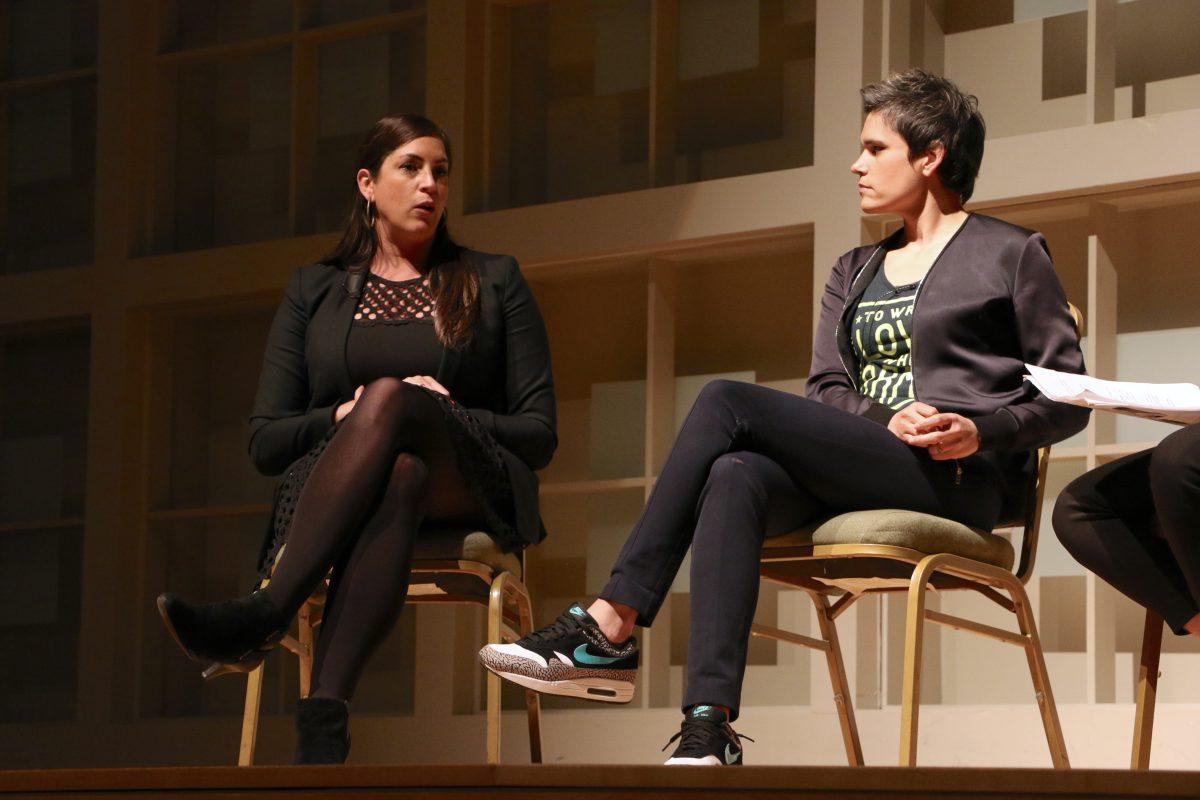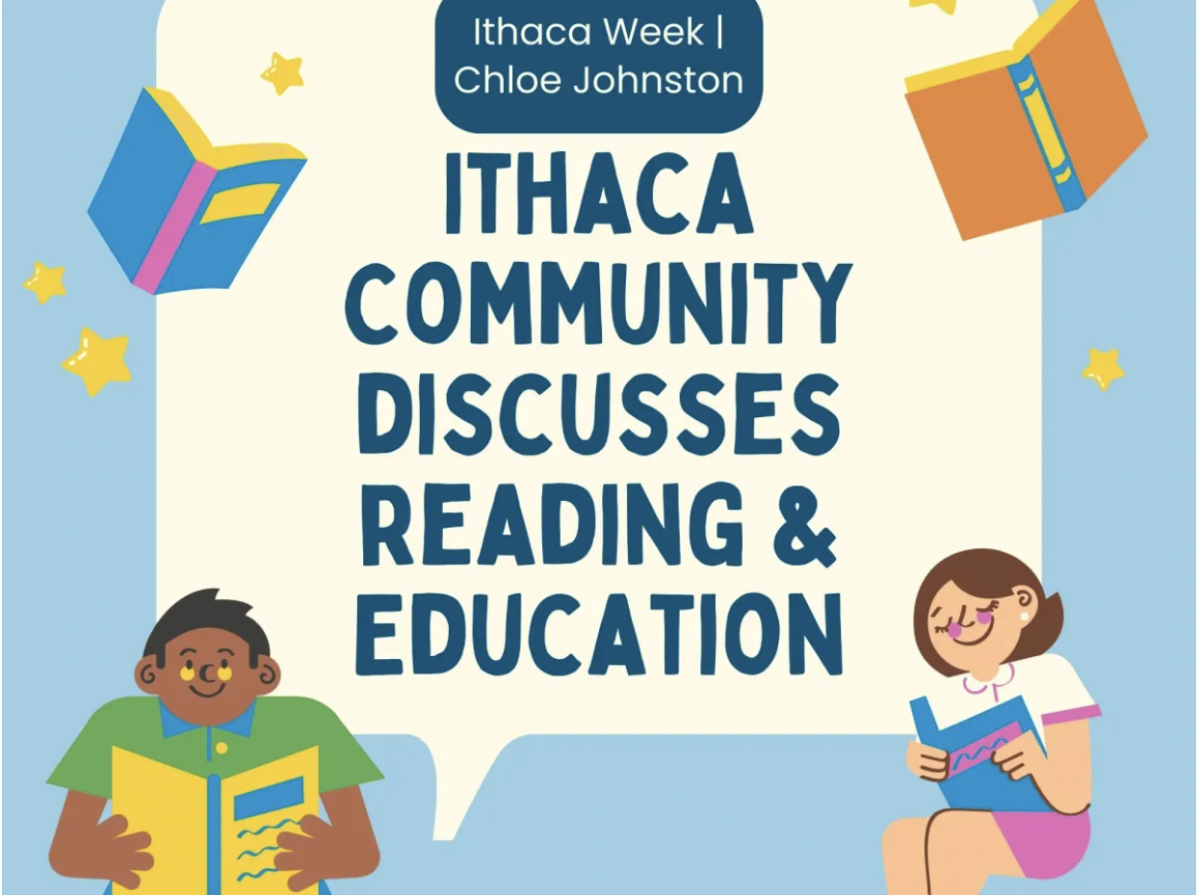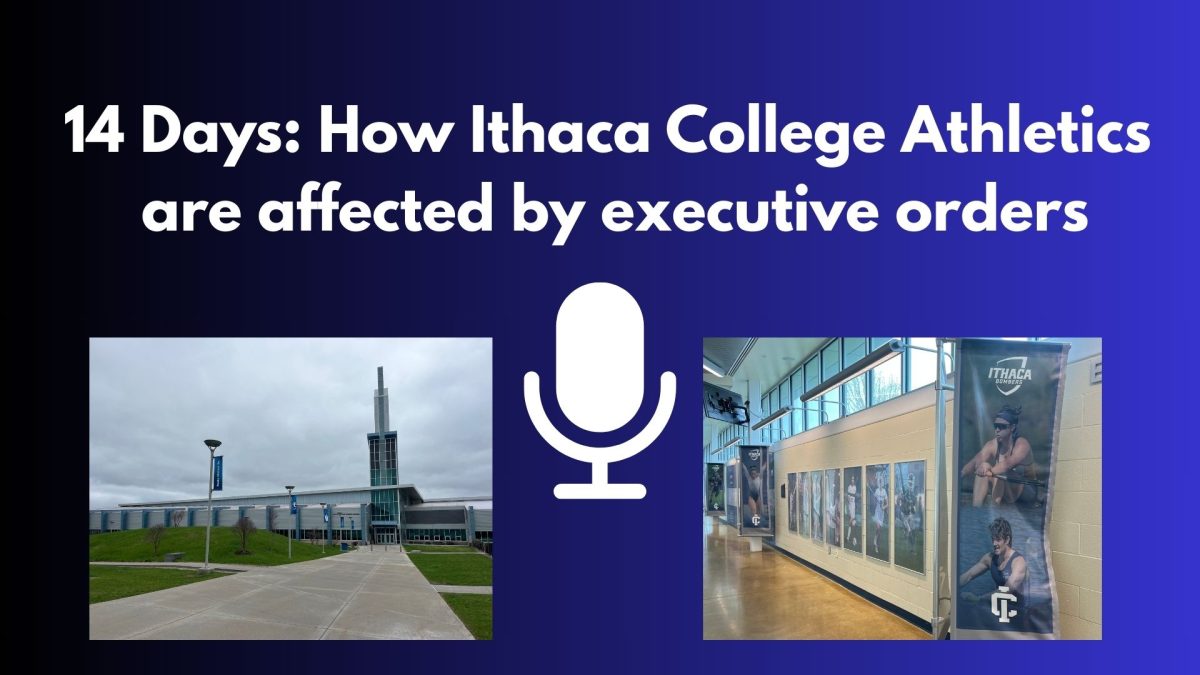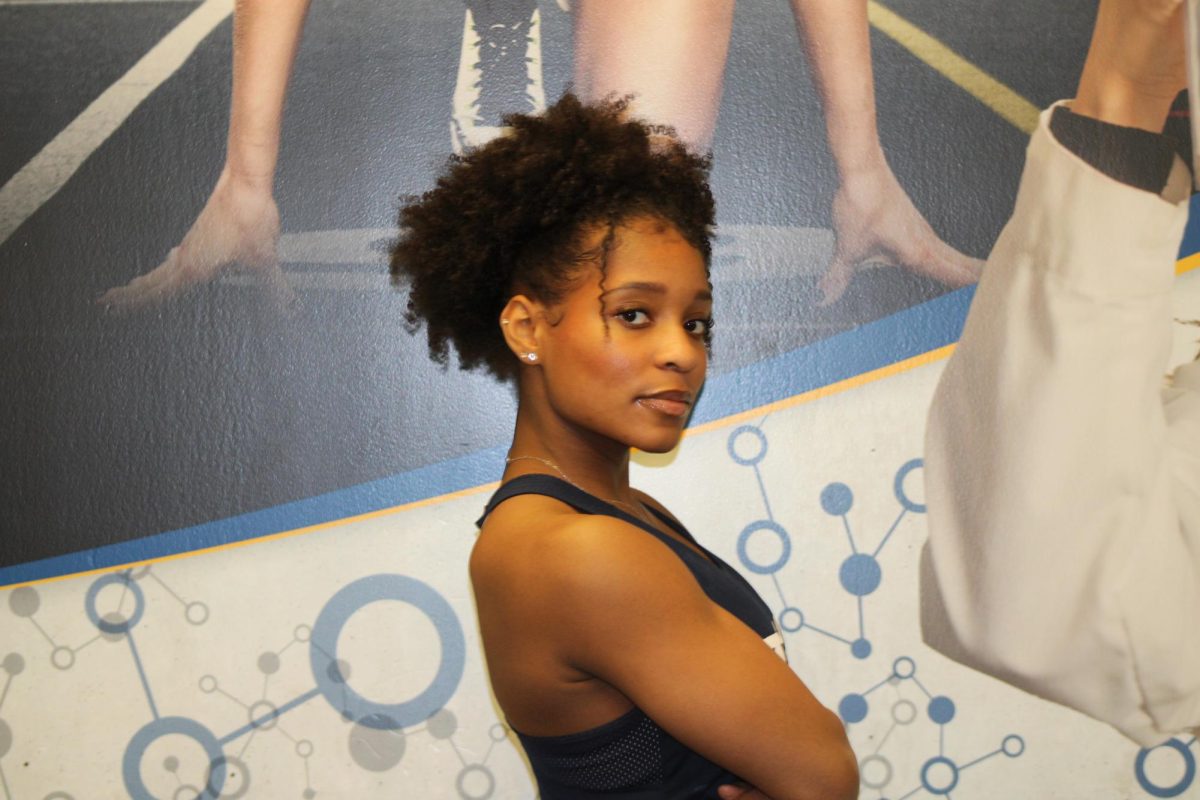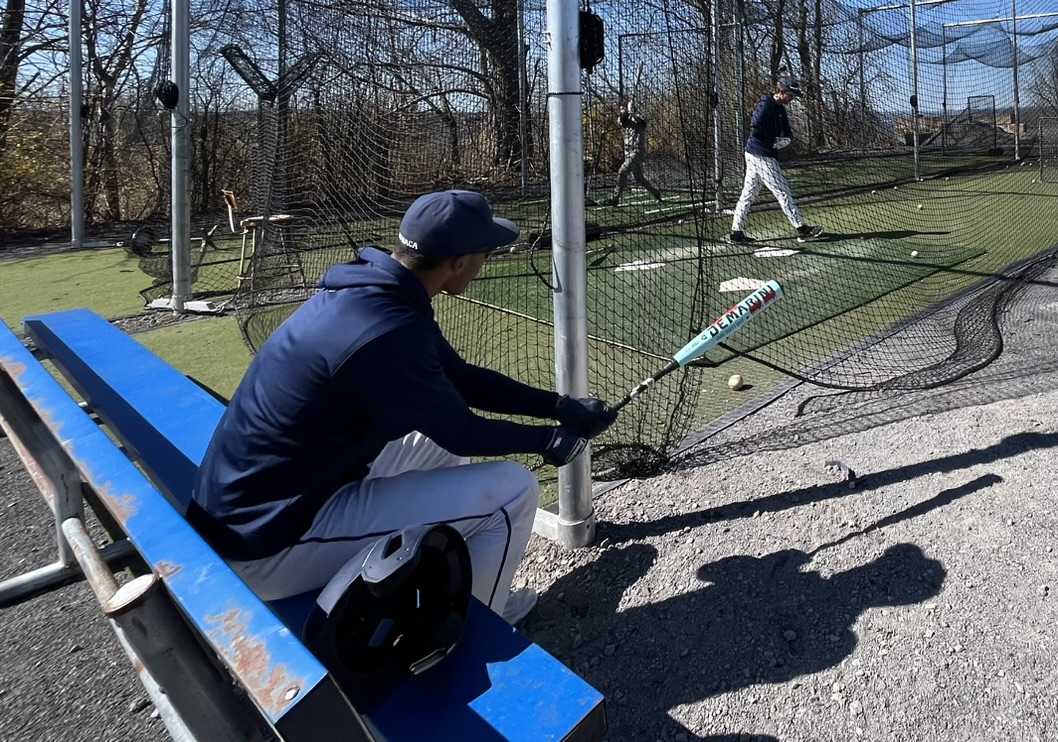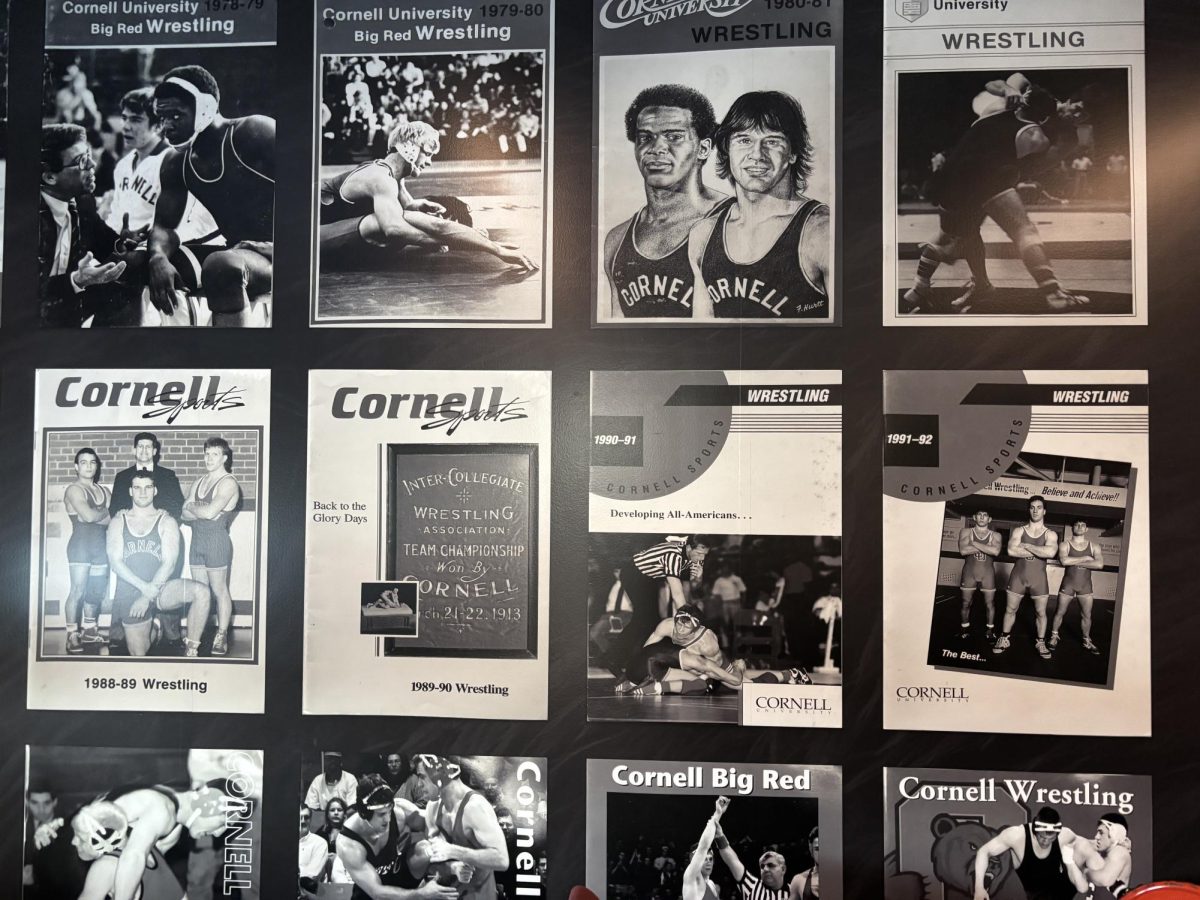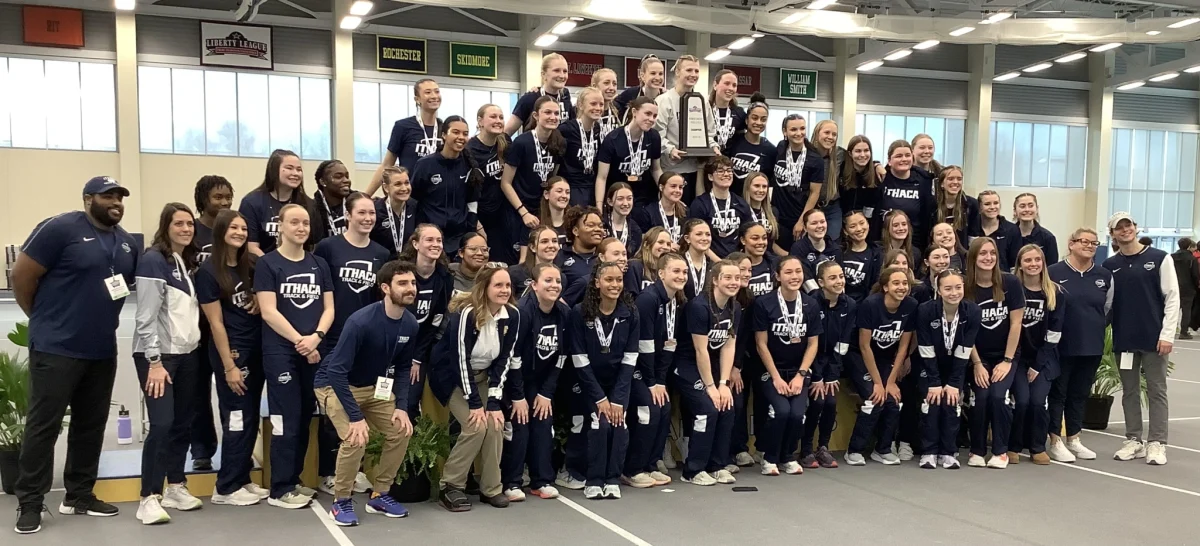By: Maddison Murnane
ITHACA-
Growing up playing hoops, Kate Fagan felt like she was one of the guys. She knew followed the life that had been paved for her from that moment on, to attend the University of Colorado Boulder and play Division I women’s basketball. It was not until college when she felt there was something that set her apart from her teammates, she had begun to recognize that she was attracted to women. Throughout her collegiate career she felt separated from her team because she felt as though she could not be open with them, she said. By the end of her five year basketball career, she came to terms with her sexuality. Fagan, an ESPN sports reporter and espnW columnist, now uses her experience to give coverage to those in sport who are overlooked by mainstream media.
It was not until 1979 that female sports reporters were allowed to report post-game from inside the locker room due to the Equal Protection Clause laid out in the 14th Amendment.
Today, women reporters still have to be cautious about how they dress, what questions they ask sources and how close to they get to an athlete. Sarah Spain, ESPN Radio host and SportsCenter Reporter for ESPN, said that when she reported from the Chicago Blackhawks locker room for the first time she faced discrimination from a senior male reporter.
“When I was reporting from a locker room for the first time there was an older man reporter who was telling other reporters that I must sleep with the players because they were giving me better answers,” Spain said. “My only real answer to that was to put my head down and work as hard as possible and show people that I belonged and deserved to be there.”

In addition to this issue, female sports reporters have to be selective about which stories they cover. Many female reporters want to report on issues in sport that are important to them, but if they set this tone too early on in their career, they will lose any credibility that they had established,Spain said.
Fagan said that the only way that she and other female sports reporters are able to make it in the industry is to work as hard as possible.
“The common thread between us in the industry and female athletes is that you’re going to have to work harder to get people to think that you’re legitimate,” Fagan said. “That’s what we have faced when we want to talk about sports. If I were a guy professional baller, I would’ve been on an NBA beat five years ago but now I have to show them that I am capable of covering the sport, which a male would not have to do.”

Sports journalism does not only lack female reporters, but it also lacks stories on female and minority athletes. Both Spain and Fagan have come a long way in their careers and after having to report exclusively on prominent male athletes for the majority of their careers, they are now able to focus on telling the stories of LGBTQ+ and female athletes and on issues that they feel are important, they said.

According to a study titled “Sport journalists’ view on gay men in sport, society and within sport media” from the International Review for the Sociology of Sport, regardless of the country, men significantly outnumber women in all realms of the sport media industry which is due to the hegemonic masculinity present within most sport media organizations. This explains why mainstream sport media neglects to cover athletes who identify as gay or issues concerning these athletes.
In order to discuss this topic further, on Thursday April 20, Fagan and Spain spoke to the Cornell Athlete Ally group on the topic of non-discrimination and equal coverage in sports media with a focus on women and the LGBTQ+ community. President of Cornell’s chapter of Athlete Ally, varsity women’s basketball player and member of the LGBTQ+ community, Nicholle Aston, said that Fagan and Spain are important voices for athletes of the LGBTQ+ community.


“They [Fagan and Spain] show diversity in sports media,” Aston said. “Sometimes people think of the super model reporter on the sideline but there are bigger and more important voices who do report on important things and give LGBTQ+ members a spot in the media.”

However, it was not easy for Fagan to find the voice that she has today in sports media, she said.
“The toughest issue for me has been that I’m seen as an activist because I want to talk about female athletes and I identify as gay,” Fagan said. “I’ve seen stories about gay athletes that I’m not allowed to report on because people think that I have an agenda. I might be an activist for female athletes or talking about LGBTQ+ issues and how they relate to sports, but then those accusing me are advocates for the status quo.”

In 2014, Fagan published her first hand account of having to hide her sexual identity from her college basketball team and the world through the book “The Reappearing Act”.

Spain and Fagan, alongside fellow ESPN reporter, Jane McManus, host a weekly radio show on ESPN titled called The Trifecta which focuses on “breaking down sports from their perspectives,” according to the website. The three are also writers for espnW, which is an outlet focused on telling stories of female athletes and stories of male athletes told from a female’s voice. The outlet also has a variety of other topics such ranging from nutrition to global stories. The broad mission of espnW is to serve female athletes in a way that they have never been catered to before, said Fagan.
Spain said that ESPN provides them with a space to talk about more than just the final score of a game.
“I think that with ESPN there is a real sense of safety because of espnW,” Spain said. “I feel empowered to bring up topics that may not usually be covered because they matter to me but I also realize that there is a give and take and you gotta play the hits. Espn has really empowered us to find that balance and doesn’t restrict us to just talking about the major athletes.”
Although strides are being taken by female sports reporters to change the climate around sports, the problem has not been resolved, said Aston.
Cornell Athlete Ally president, Nicholle Aston, giving her opening remarks at the event.
“There is so much more work to be done,” Aston said. “If you look at March Madness there was national coverage on multiple TV stations. It is a ratings game and women’s sports are not perceived to be able to get enough attention. It’s a problem with engaging viewers but there has certainly been a lot of improvement, at least while I have been alive.”

